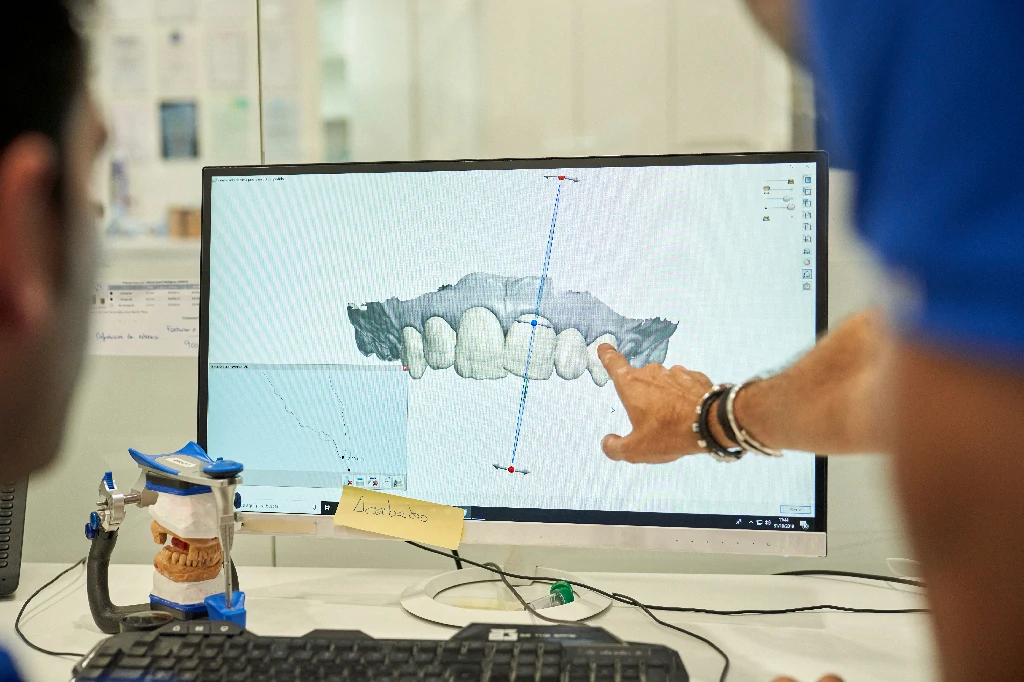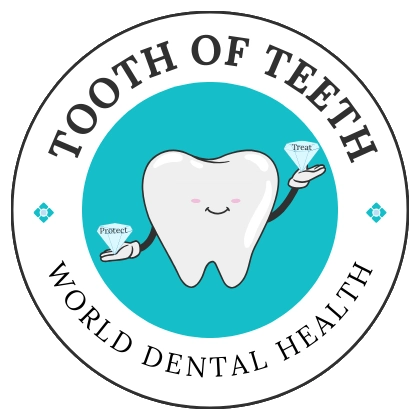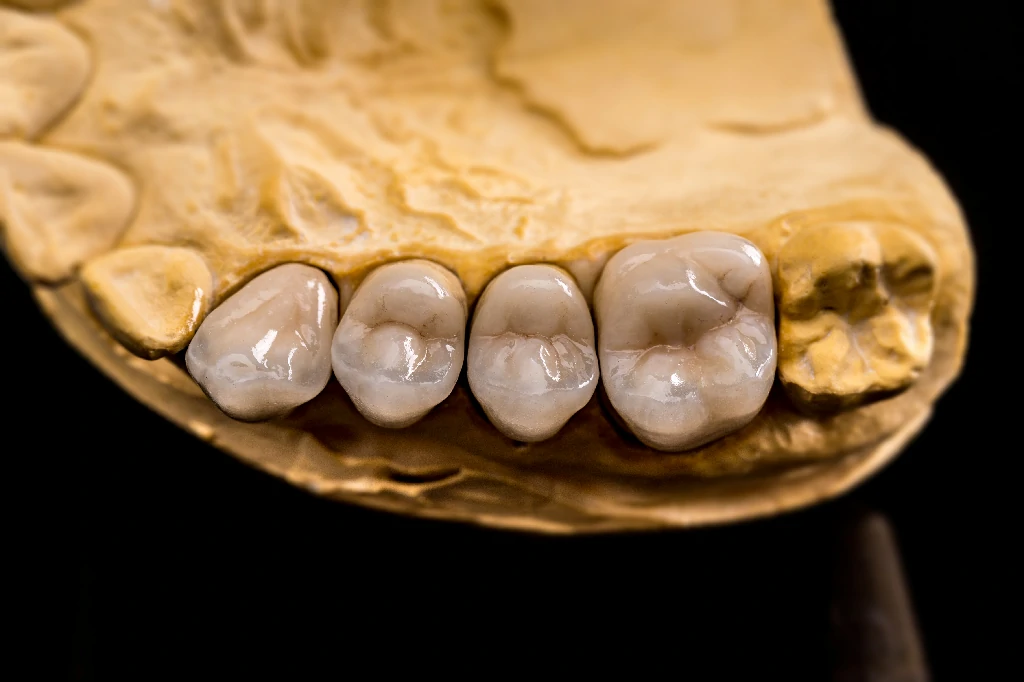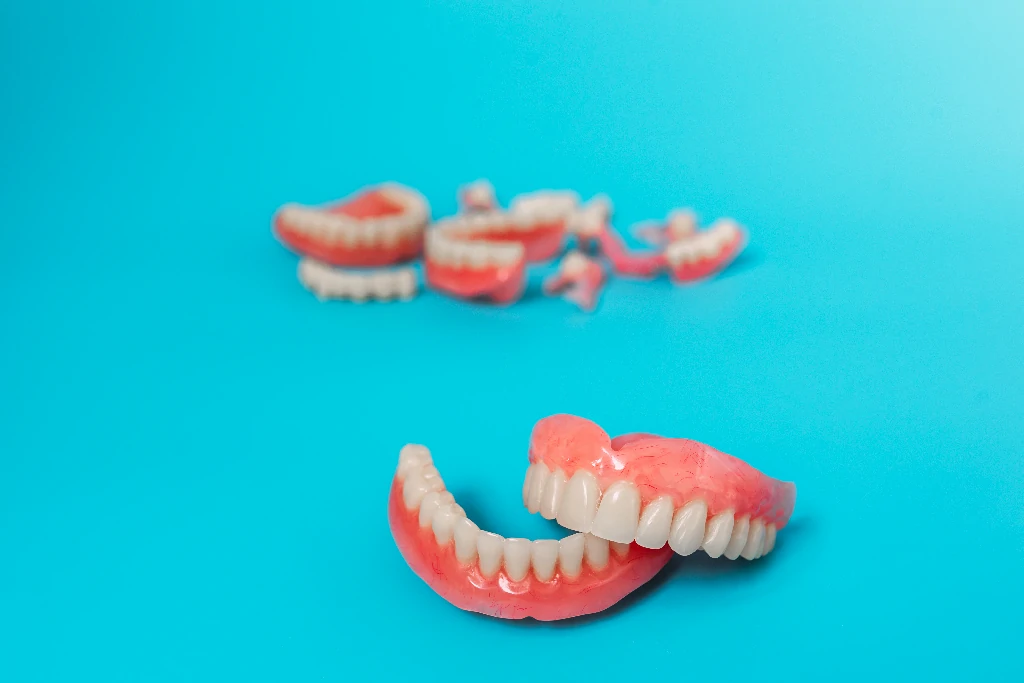Introduction
Dental prosthetics are essential in restorative dentistry, designed to replace lost or damaged teeth while improving the functionality and aesthetics of the mouth. These prosthetics range widely in type, materials, and techniques, each chosen based on individual patient needs. This article delves into the different types of dental prosthetics, their benefits, and the best options based on quality, budget, and compatibility with individual oral health.
What Are Dental Prosthetics?
Dental prosthetics are custom-made devices used to replace missing or damaged teeth. They are carefully designed to mimic the appearance and function of natural teeth, restoring a person’s smile, chewing ability, and speech. Dental prosthetics can play a critical role in both the aesthetic and functional rehabilitation of the mouth.

Types of Dental Prosthetics
Dental prosthetics come in various forms, each chosen based on the patient’s specific dental needs, personal preferences, and budget. The main types are:
- Fixed Prosthetics
Fixed prosthetics are permanent restorations that cannot be removed by the patient, including:
- Crowns: These cover and protect a damaged tooth or restore a severely worn-down tooth. Crowns are often made from porcelain or zirconia, which offer durability and a natural appearance.
- Bridges: Used to replace one or more missing teeth, bridges are anchored onto surrounding healthy teeth, with artificial teeth filling the gap. Bridges are suitable for patients with strong, healthy adjacent teeth.

- Removable Prosthetics
Removable prosthetics are flexible options that can be taken out for cleaning and comfort, including:
- Removable Partial Dentures: These are designed to replace a section of missing teeth and rely on natural teeth or gum tissue for support.
- Full Dentures: Complete dentures are used to replace all teeth in the upper or lower jaw, typically made from acrylic or porcelain. Full dentures are a popular choice for patients with complete tooth loss.

- Dental Implants
Dental implants are one of the most advanced and permanent solutions for replacing missing teeth. They involve surgically placing a titanium post into the jawbone, which acts as a tooth root, and then attaching a custom-made crown. Implants offer stability and durability comparable to natural teeth, though they are often more costly than other options.
How to Choose the Best Type of Dental Prosthetic
The ideal dental prosthetic depends on several factors, including:
- Oral Health Condition: Implants are suitable for patients with sufficient bone density in their jaw, while removable dentures may work better for those with weaker jawbone structure.
- Budget: The cost varies greatly between types, with removable dentures being more economical, while dental implants are generally the most expensive but offer the longest lifespan.

- Maintenance and Care: Fixed prosthetics require diligent care to maintain their integrity, while removable dentures are easy to clean but may need replacement over time.
Advantages and Disadvantages of Each Type
- Fixed Prosthetics: These offer high durability and a natural look but require the modification of adjacent teeth and tend to be pricier.
- Removable Prosthetics: They are cost-effective and easy to maintain, yet may cause gum irritation and need periodic adjustments or replacement.
- Dental Implants: Known for their longevity and natural feel, implants are highly durable but involve a surgical procedure and are generally the most expensive option.
Recent Advances in Dental Prosthetics
With continuous advancements, dental prosthetics now utilize 3D printing and CAD/CAM (computer-aided design and manufacturing) technology, allowing for precise and customized prosthetic solutions. Materials like zirconia and reinforced porcelain are becoming more popular due to their strength and aesthetic appeal, making prosthetics more lifelike and longer-lasting.

Conclusion
Choosing the right dental prosthetic largely depends on the patient’s oral health, personal preferences, and budget. Dental implants are ideal solution, while removable dentures may be a comfortable, temporary option for patients with specific limited finances. Maintaining oral hygiene will help prolong life and effectiveness of any dental prosthetic chosen, ultimately leading to confident, healthy smile.











